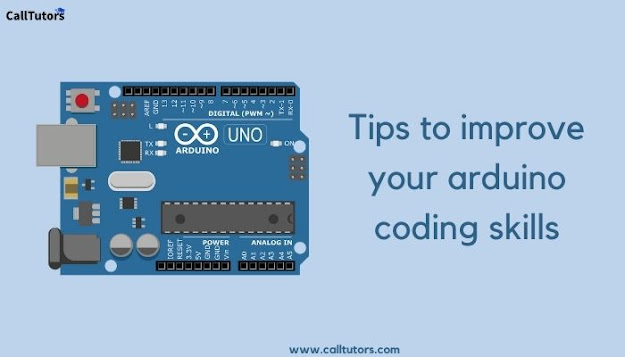Even the programmer is baffled as to how it would ever run. You can write a perfectly functional application where no one can understand how it works 24 hours after it is completed. The first step in learning every programming language is to learn how to write legible code. It's impossible to do when you first start training. Learning Arduino coding is daunting for the majority of beginners. As a result, they are looking for the right Arduino coding help. Don't panic if you're having problems with Arduino coding. We are here going to discuss everything about Arduino coding including Important Tips to improve your Arduino coding skills.
What Is Arduino?
Arduino is an open-source programmable circuit board that can be used in both basic and advanced maker space projects. This board includes a microcontroller that can be programmed to detect and monitor physical objects. The Arduino can communicate with a wide range of outputs such as LEDs, motors, and displays by responding to sensors and inputs. Arduino has been a common option for developers looking to build immersive hardware projects because of its simplicity and low cost.
Important Tips to Improve your Arduino coding skills
Transition to using mbed
Transitioning from the Arduino ecosystem to the mbed ecosystem is one of the first things to remember. Mbed enables Arduino developers to switch away from mainly 8-bit or 16-bit components and into a 32-bit Arm architecture. Mbed embraces a much larger number of microcontroller production boards and offers a more robust ecosystem for developers to use. In reality, a mbed creator can create applications either locally or in the cloud. This allows you to function in a variety of IDEs or even from a command prompt.
Give MicroPython a try
A developer may choose to venture into entirely uncharted and unknown territories on occasion. One way to do this is to abandon C/C++ entirely and attempt to construct a framework in Python. MicroPython is the Python programming language of choice for microcontroller developers. MicroPython supports Python 3.4 and has a Python interpreter that has been ported to C for use on microcontrollers. This enables a developer to rapidly and efficiently create an application by writing basic Python scripts and using the MicroPython libraries and APIs.
Learn real-time C++ techniques
An Arduino creator could be perfectly familiar with the hardware they're working with as well as the language they're using. They simply want to improve their language abilities. The developer isn't actually going beyond Arduino in this situation, but they are learning programming skills that would enable them to go beyond Arduino if they so desire. Learning real-time C++ programming techniques is a perfect way to get started. This will necessitate a deeper understanding of the C++ language, as well as methods such as using pure virtual functions, models, and how to architect reusable applications.
Develop your own driver code
Trying to write a driver would be a brilliant move out of the Arduino comfort zone for a developer who just needs to understand how the underlying hardware operates. Writing a driver necessitates familiarity with the processor architecture, memory map, and peripheral for which the driver is being written. Developers may continue to use their Arduino boards but at a lower stage of the program stack. If you're interested in doing this, I'd consider starting with a general-purpose input/output driver and then moving on to a USART driver that can send and receive characters. This can be followed up with the development of a circular buffer in which to store the characters.
Explore the ESP32 Ecosystem
If an Arduino developer wants to make a big change, they should try something new like the ESP32 ecosystem, which uses different languages and hardware. With each passing day, the ESP32, a Wi-Fi/Bluetooth processor module, is being used in more IoT applications. The modules themselves are cheap, and they come with open-source libraries similar to Arduino's. The libraries are written in C, which enables the developer to delve further into the hardware and provide greater functionality and power. Many of the modules are also multicore, posing a new level of software sophistication for developers to master.
Final words
Here we have provided you Important Tips to improve your Arduino coding skills. Therefore we hope that this post will become very helpful for each beginner who just started learning. Still, if you have any confusion even if you find it impossible to learn arduino coding, then don’t hesitate to contact us. We are here providing the best Arduino programming help around the world.







0 Comments